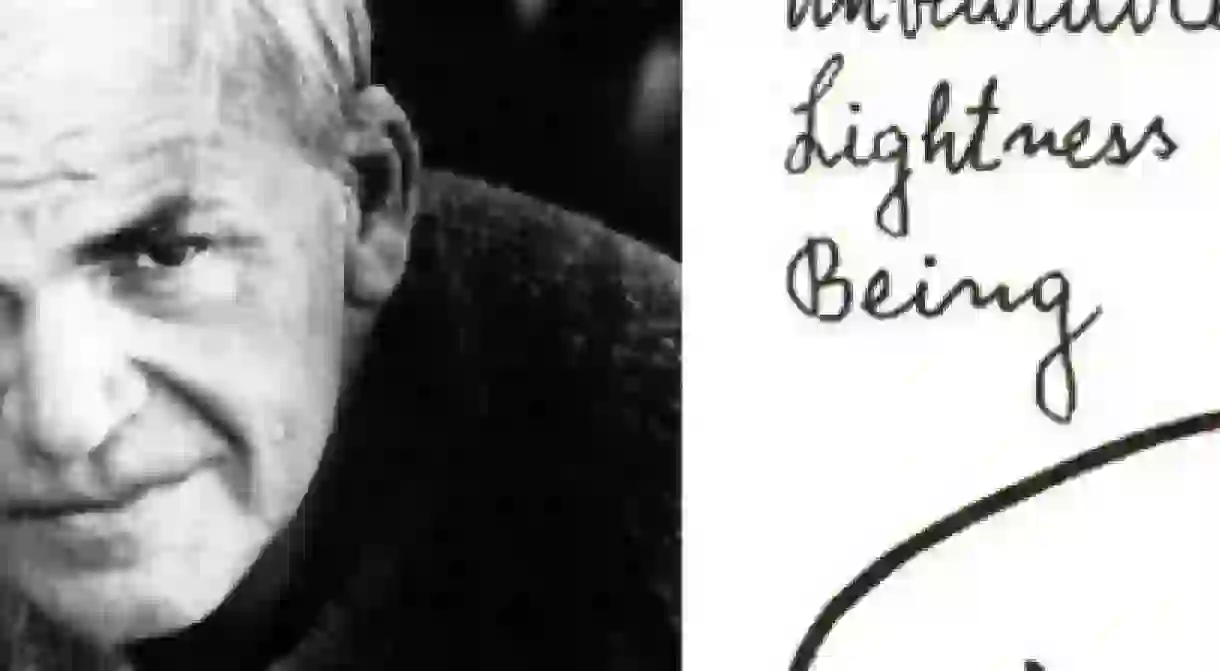Milan Kundera: Blending Politics, Philosophy and Passion

Milan Kundera is the most celebrated Czech writer of his generation and an international literary icon whose works are famous for their blend of philosophical speculation, political commentary and dark humour. Claire Hayward looks at his life and work.

Milan Kundera, born in Brno, Czechoslovakia, is widely regarded as the most influential contemporary Czech writer. Despite this, he has not had Czech citizenship since it was stripped from him in 1979, and has been a French citizen since 1981. As a young student at Charles University, Prague, he became influenced by Marxism. His interest and involvement in Marxism has continued to affect his career ever since. He joined the Communist Party in 1948, was expelled in 1950 and re-joined from 1965 until 1970, when he was expelled again. His exile came after the publication of his critically acclaimed novel, The Joke (1967), and the Soviet invasion of Czechoslovakia in 1968. Kundera, alongside other communist reform writers, became involved in the ‘Prague Spring’of 1968, which aimed for political liberalisation, and which would later influence on of his greatest works, The Unbearable Lightness of Being (1984).
After the invasion, he was removed from his post of film-studies lecturing, and banned from publishing any more works in Czechoslovakia. Both Life is Elsewhere (1969) which won the Prix Medicis award in France, and The Farewell Party (1972)(or The Farewell Waltz) were published abroad, before he relocated to France in 1975.
Despite his obvious interest in affairs of the state, Kundera has claimed that novels should not be influenced by politics: they should remain autonomous. It is true to say though, that his experiences in Czechoslovakia and his dalliance with communism have inspired his novels, and are essential to some of his stories. As well as being tinged with politics, his novels take on a philosophical, dreamy nature in which his early work as a poet is often evident. This is particularly the case in his best known, and most highly praised novels, The Book of Laughter and Forgetting (1978) and The Unbearable Lightness of Being (1984).
The Book of Laughter and Forgetting (1978) tells seven separate stories, connected to each other by common themes. It is ‘about laughter and about forgetting, about forgetting and about Prague, about Prague and about the angels,’, as Kundera states, and highlights perfectly his ability to write the powerful stories despite avoiding traditional linear narratives. The Unbearable Lightness of Being (1984) too, uses his unique and instantly recognisable style of interlinking and connecting both stories and people. Both these novels when published were heralded as contemporary classics, and made Kundera an internationally respected author.
He has won many awards for his work, notably the Jerusalem Prize, awarded to the author whose work ‘best expresses and promotes the idea of the freedom of the individual in society.’ This not only highlights the importance of Kundera’s work, but also summarises his style, politics and indeed many of his characters. He has also received the Herder Prize and Czechoslovakia’s top literary prize, the Czech State Literature Prize.
Kundera’s ability to interweave philosophy, history, dreams and romance into his stories, whilst also keeping them incredibly readable is a testament to his originality and extraordinary talent.
By Claire Hayward













